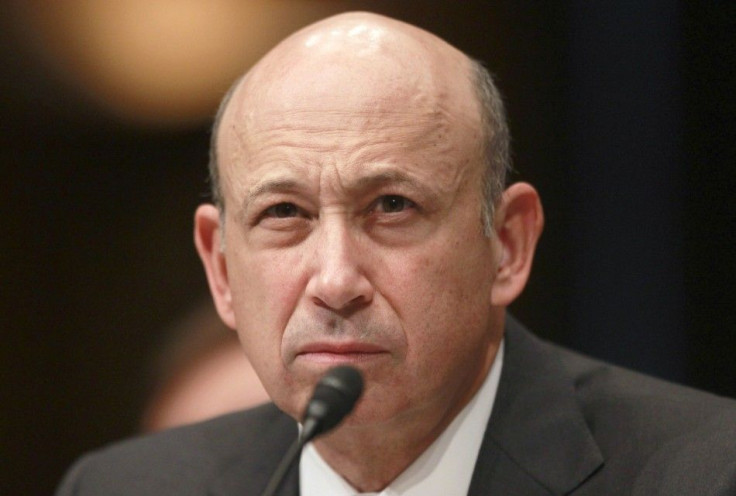Big Bank Execs Were Blindsided By Financial Crisis, New Government Disclosures Show

In a newly released cache of interviews conducted by a federal commission in the wake of the 2008 financial crisis, Wall Street business leaders express their disbelief at the scale and suddenness of the implosion.
The transcribed conversations with senior-level management at Goldman Sachs, Citigroup and other banking giants, released Friday, reveal an industry blindsided by the market disaster that followed the collapse in housing prices — a failure exacerbated by overstretched balance sheets and ballooning sales of complex financial products like credit default swaps and collateralized debt obligations.
Goldman Sachs Chief Executive Lloyd Blankfein told interviewers that before the crisis he hadn't thought seriously about the bank's leverage — that is, the ratio of assets in hand to debts owed. “Until recently, I wasn't even conscious of what our leverage was,” Blankfein said.
Blankfein said that he thought of risks in terms of the balance sheet rather than overall leverage. Since the crisis, the leverage concept has become central to prudential bank regulation. “We had no decision to be more leverage [sic] or more risky,” he said.
Vikram Pandit, former CEO of Citigroup, told interviewers that he considered the subprime mortgage crisis to be a “black swan” event. “A lot of people didn’t stress house prices [falling] by 40 percent,” Pandit, who left the bank in 2012, said. “That leaves you with things like understanding that you don’t always pick up every scenario that’s possible.”
The crisis was precipitated by the widespread packaging of home loans into mortgage-backed securities. These bonds were subsequently diced up and repackaged in increasingly complex forms by banks like Goldman and insurers like AIG. Though ratings agencies certified these products as investment-grade, they often included shoddily underwritten mortgages that were likely to fail.
According to the Financial Crisis Inquiry Commission, the group the government convened to investigate the causes of the meltdown, these risky products served as fuel for the sudden crackup of the financial markets.
“When the bubble burst, hundreds of billions of dollars in losses in mortgages and mortgage-related securities shook markets as well as financial institutions that had significant exposures to those mortgages and had borrowed heavily against them,” the commission wrote in its 2011 report.
In interview notes, Blankfein defended the creation of collateralized debt obligations, a type of derivative that was central to the crisis. The product, which allows one party to wager on whether a debt will default, had legitimate uses, Blankfein said.
“Yes, it’s a bet,” he continued. “But it has social utility because it’s adding liquidity to the market, and the market isn’t useless. It’s mortgages.”
The documents released Friday were not a complete record of transcripts from the commission. Bank of America and Morgan Stanley, among others, requested that the government refrain from publicizing materials made in the course of the inquiry, which participants considered confidential.
Phil Angelides, the former chairman of the commission, disputed that decision in a statement Friday. “The public has the right to see the evidence obtained by the FCIC about what and who caused the financial crisis,” Angelides said. “It is critical that as much information as possible be made publicly available as expeditiously as possible.”
It's unclear whether further disclosures are forthcoming, particularly given the sensitive nature of the material and the relatively unvarnished testimony from top financiers.
Hedge fund manager Steve Eisman, for instance, offered a particularly unflattering portrait of the industry. “All of CEOs are clueless,” he said, with the possible exception of Blankfein. Eisman, whose prediction of the coming crisis earned him a fortune — and a role in the recent film “The Big Short” — gave one of the longest and most detailed of the recorded interviews.
“Everyone really did believe that things were going to be OK,” he said. “[I] thought they were certifiable lunatics.”
© Copyright IBTimes 2024. All rights reserved.












